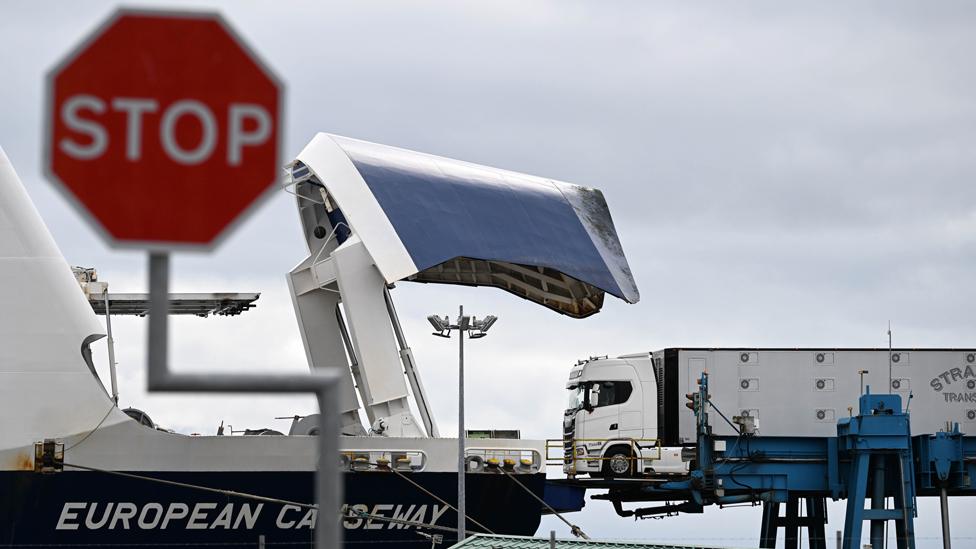UK and EU formally adopt new Brexit Windsor Framework deal
- Published
- comments
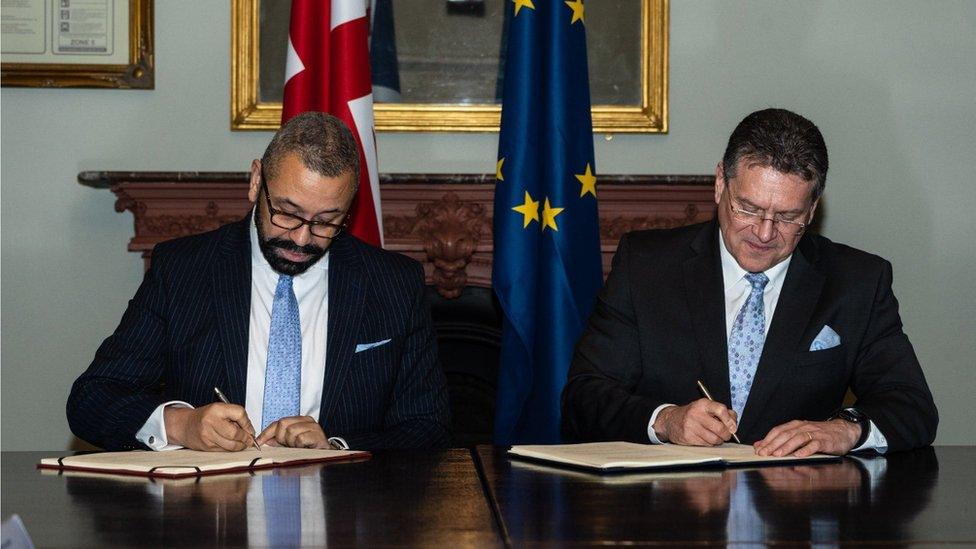
James Cleverly and Maros Sefcovic met in London on Friday to ratify the deal
The new Brexit deal for Northern Ireland has been formally adopted by the UK and EU, Downing Street has said.
Known as the Windsor Framework, it is designed to make trade between Northern Ireland and the rest of the UK easier.
It gives the Stormont assembly more say over EU rules and has been welcomed by most Northern Ireland parties.
However the Democratic Unionist Party (DUP) voted against a key aspect of the deal on Wednesday and is still refusing to re-enter power-sharing.
Earlier the EU's chief Brexit negotiator said the framework allowed the UK and the EU to begin a "new chapter in relations".
Maros Sefcovic was in London on Friday to ratify the new post-Brexit deal with UK Foreign Secretary James Cleverly.
Mr Sefcovic said the EU would continue listening to everyone in Northern Ireland and continue its commitment to the peace process.
He said both sides had "listened, understood and acted for the benefit of both our interests".
"Now the Windsor Framework is the result of that genuine engagement and shared vision," he said.
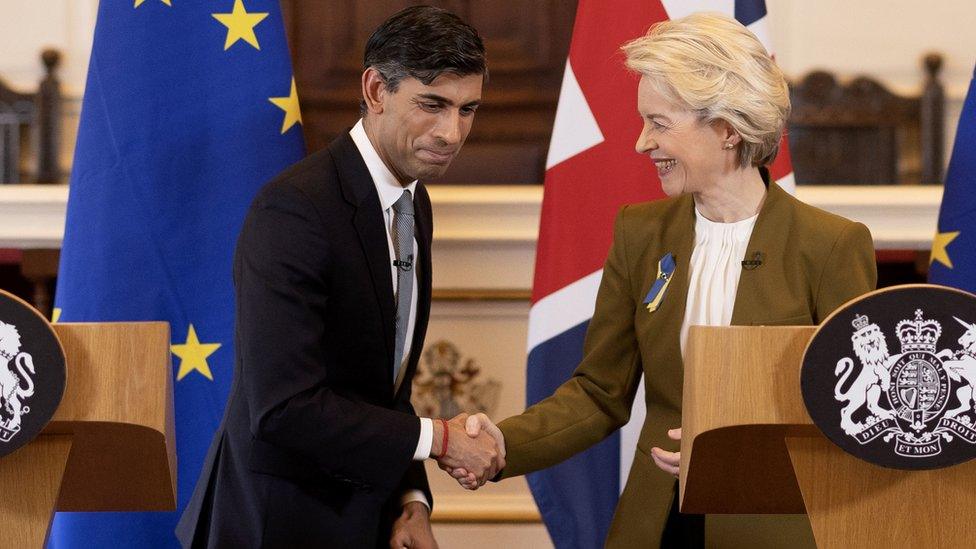
The new Brexit deal was agreed by Rishi Sunak and European Commission President Ursula von der Leyen last month
Mr Cleverly said the negotiations had been "thoughtful, professional and in the spirit of friendship and cooperation".
"What we achieved was... something which protected the EU's single market, protected the UK's internal market but most importantly protected the elements of the Belfast Agreement," he said.
Jayne Brady, the head of the Northern Ireland Civil Service, was the representative from Northern Ireland at the Joint Committee meeting.
She was taking part in the absence of a Northern Ireland first and deputy first minister.
A joint statement from Mr Cleverly and Mr Sefcovic, external said both the UK and EU had taken a "positive approach" and "reaffirmed their intent" to use the framework to resolve any future issues.
However the Democratic Unionist Party MP Gregory Campbell said Friday's ratification was "not the final word".
"It has to come back to the people of Northern Ireland," he said.
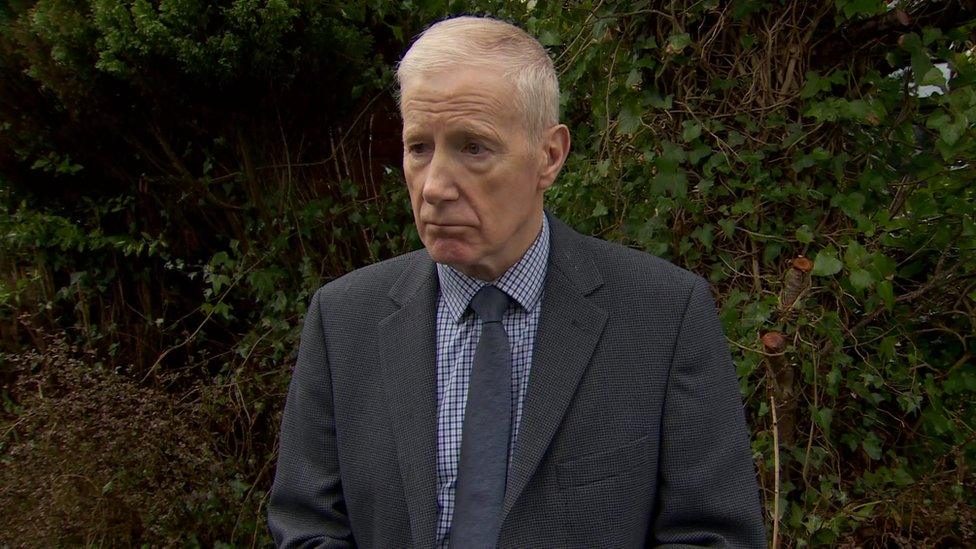
Gregory Campbell says more changes are needed
"That's the bottom line. The unionist community don't buy into this process - what part of that does he (Rishi Sunak) not get?
"That's what they have to address - both communities have to buy in and we don't buy into this one so we have to alter, change or adapt it," he said.
"If it's take it or leave it - we're not going to take it."


Today is really more a formality - the deal itself had already been reached.
The UK government is feeling pretty relieved after it passed through the House of Commons with a far smaller Tory rebellion than some had anticipated.
There are still some UK-EU negotiations ahead.
Today's talks will mark the start of, yes, more talks and later negotiations and wrangling over money when it comes to the UK's access to the EU's flagship Horizon research scheme.
The big sticking point is still the DUP refusing to back the Windsor Framework and go back into power-sharing in Northern Ireland.
The main concession the UK government gained - that Stormont will now get more of a say over EU rules that apply in Northern Ireland - is somewhat redundant while Stormont is not sitting and Northern Ireland remains without a functioning devolved government.
It is not yet clear what the DUP's next move will be and what will give the party the reassurances to return to power-sharing.
But Downing Street is keen to plough on and play the long game even if the DUP is not yet on side.

On Thursday Northern Ireland Secretary Chris Heaton-Harris said the DUP - Northern Ireland's second largest party after Sinn Féin - has yet to come to terms with the significance of the overwhelming parliamentary vote in support of the new deal.
He said the deal was done and there would be "no renegotiating" of it.
His comments came a day after MPs voted by 515 to 29 to support the deal agreed by Prime Minister Rishi Sunak last month.
It will open the door to talks in other areas of cooperation that had been blocked, including financial services and Britain's access to the EU's flagship Horizon research scheme.
But the DUP and some Conservative MPs voted against the deal, saying the UK government had to make changes to it.

More on new NI Brexit deal
AT-A-GLANCE: The keys points in the agreement
EXPLAINED: The Stormont brake and how it works

What is the Windsor Framework?
The Windsor Framework was signed to alter the Northern Ireland Protocol - and aims to significantly reduce the number of checks on any goods arriving in Northern Ireland from Great Britain.
The Stormont Brake mechanism, which the DUP voted against, would also allow the Northern Ireland Assembly to object to new EU rules.
Thirty assembly members, from two or more parties, can pause new EU legislation applying in NI.
This could happen in instances were a new EU law would have a "significant impact specific to everyday life".
Honeysuckle hassle?
A body representing horticultural businesses has said the framework leaves several issues unresolved for the trade in plants from Great Britain to Northern Ireland.
The Horticultural Trades Association (HTA) has written to the prime minister, complaining that the deal means "several key species of trees and plants will remain prohibited for exporting to Northern Ireland".
It said this includes popular species such as hawthorn, hazel, honeysuckle and jasmine.
However the government has suggested that those could be permitted for Great Britain to Northern Ireland sales at a later date.

The Horticultural Trades Association has written to the prime minister to voice its concerns
The EU has strict rules on plant health and, under the original Northern Ireland Protocol, species it considered high risk were banned from being sent to Northern Ireland from Great Britain.
The framework means some but not all of those species are now permitted.
A government spokesperson said: "We have paved the way for 11 banned plant species to move again by the time of the next planting season.
"Those were priority cases identified by industry itself and we will progress further cases wherever there is industry appetite."
The HTA is also calling for the establishing of what it calls a British and Northern Irish Horticulture and Seed Potato Traders Forum to identify and work through the outstanding issues.
It is understood the government is planning to step up consultation with businesses in the coming weeks.
That is aimed at finalising the details of the trusted trader scheme and "green lane", which will be central to easing the flow of goods from Great Britain to Northern Ireland.
Related topics
- Published23 March 2023
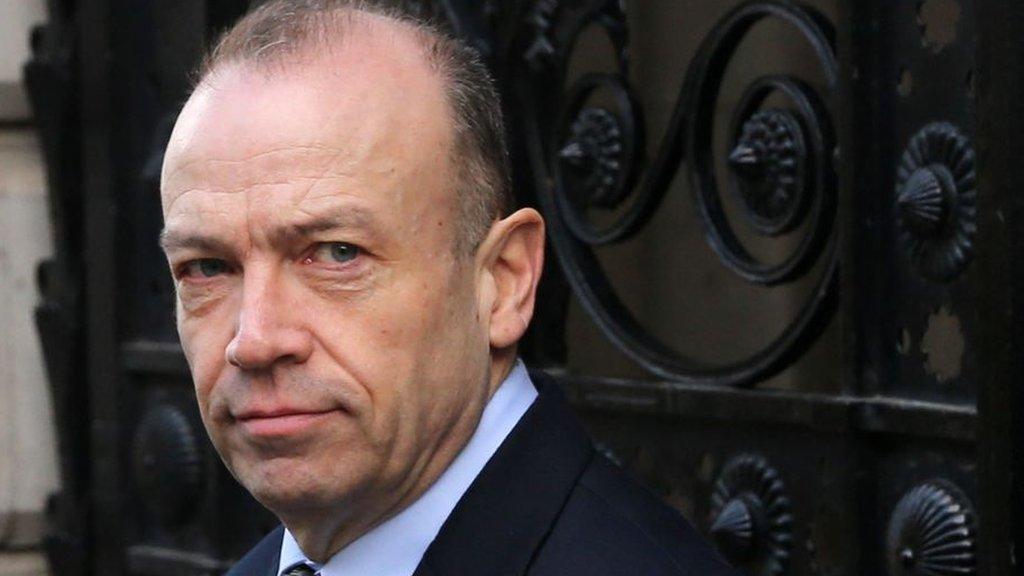
- Published22 March 2023
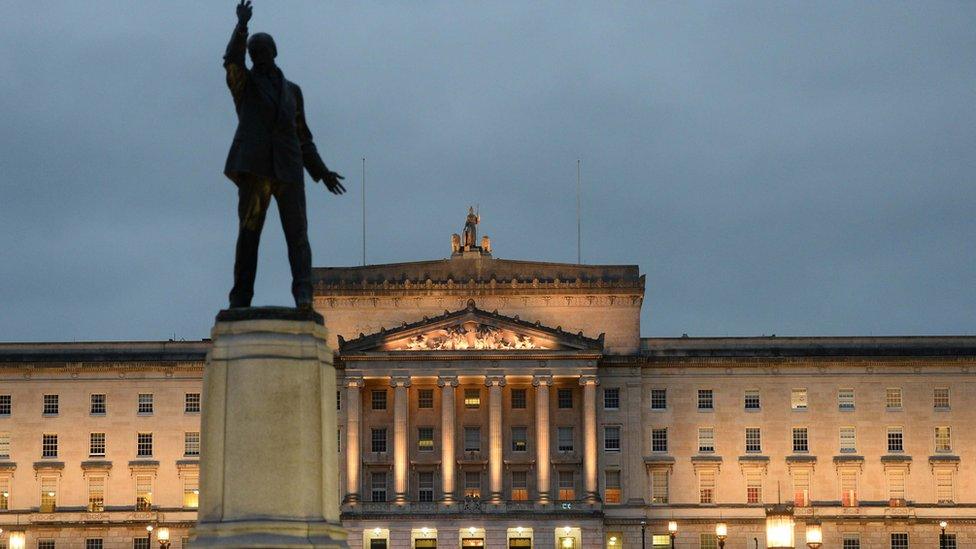
- Published2 February 2024

- Published28 February 2023
